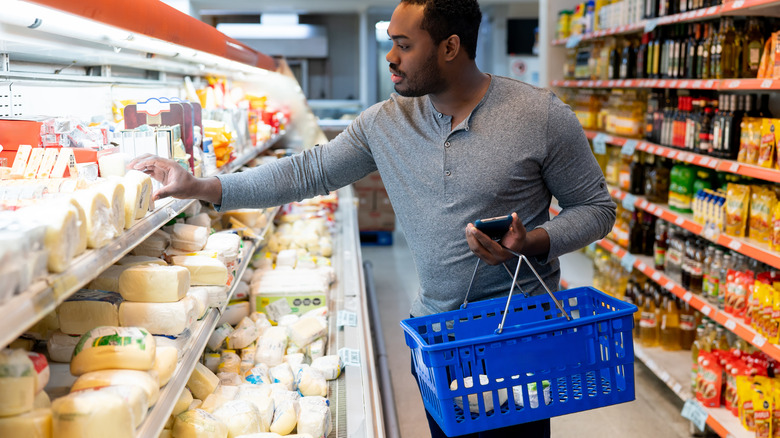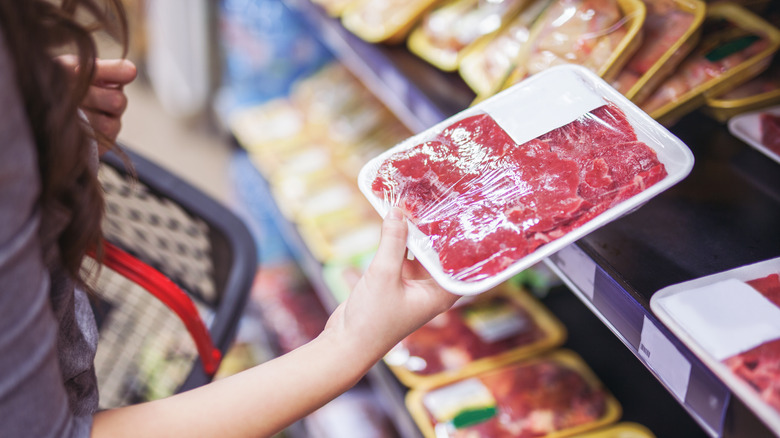For Maximum Freshness, Grab Meat And Dairy Last At The Grocery Store
We all have different ways of getting around a grocery store. Some of us might choose to shop systematically, row by row and aisle by aisle to make sure nothing is left out or forgotten. Those with less time on their hands might prefer to dash in with a list in hand, pick out only what they need and then exit as quickly as possible. But regardless of how you choose to fill your grocery cart, it's a good idea to leave your meat and dairy selections to the very end — and there is a food safety reason for this.
The U.S. Department of Agriculture (USDA) reminds us that specific food items which spoil easily — including uncooked meats, dairy, and fresh produce — can only be kept out of the refrigerator for up to two hours. This timing applies if the perishable items are stored at room temperature, which is generally defined as being between 68 to 72 degrees Fahrenheit. Once the thermostat rises to 90 degrees Fahrenheit, the time food can stay out safely goes down to just an hour — these times are determined by the amount of time it takes for bacteria to grow and multiply.
Grocery store interiors could be much warmer than we realize
While the U.S. doesn't have clearly defined rules about what a grocery store's temperature needs to be, the Occupational Safety and Health Administration (OSHA) recommends that the temperature of an indoor office or retail space be set between 68 and 76 degrees Fahrenheit. Since dry goods are meant to be stored between 50 and 70 degrees Fahrenheit, we can safely assume a supermarket's temperature would sit closer to 70. Unfortunately, those temps are well above what's recommended to maintain the integrity of refrigerated items (32 to 40 degrees Fahrenheit) or frozen foods (0 degrees Fahrenheit or below).
These numbers are important, but we hardly think about them when we go grocery shopping, just as we hardly think about the amount of time our fresh food selections actually sit in our carts. We don't also factor in time spent at the checkout and the time we would need to get the groceries home and safely put away.
Since most of us aren't likely to toss anything we just brought home from the grocery store (even if it's past the USDA's two-hour timeframe), the least we can do is help ourselves by keeping our meats, produce, and dairy as fresh as possible by making these items the last ones to go into our shopping carts — and maybe by doing grocery runs with a cooler.

